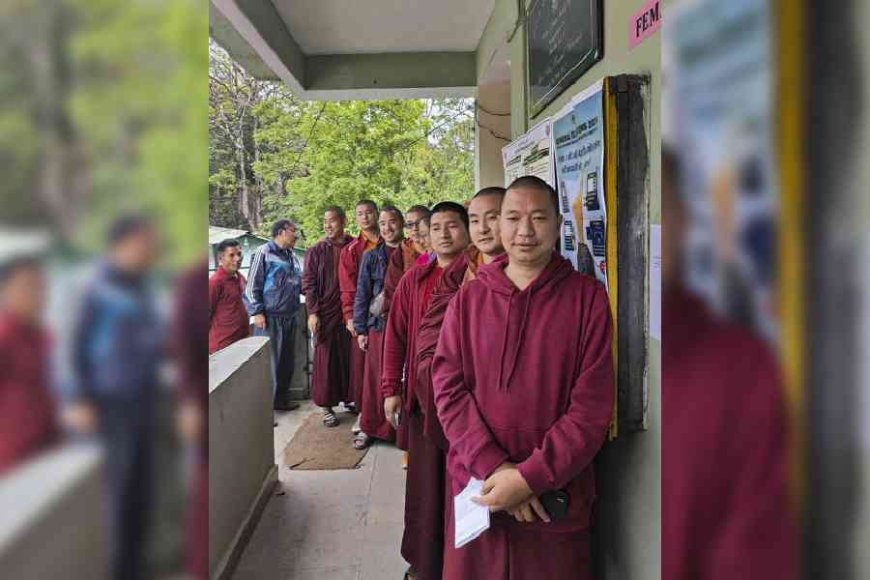Upholding Tradition: Sikkim's Unique Sangha Seat in the Assembly Elections
Insights into the Historic Role of Buddhist Monks and Nuns in Sikkim's Electoral Process

Sikkim's 300-year-old custom was once again upheld by Buddhist monk Ongdi Pintso Bhutia of the Thensong monastery in north Sikkim, who pressed the EVM to cast his vote on Friday.
The country's only state having an intangible Assembly seat designated for Buddhist monks and nuns, known as the Sangha, is Sikkim. In contrast to the other thirty-one Assembly seats in Sikkim, the Sangha lacks a defined geographical limits.
The Himalayan state's 111 officially recognized monasteries' Buddhist monks and nuns cast their votes for a candidate who must likewise be a monk or nun.
There are 2,881 Sangha voters overall. Sangha voters use a different electronic voting machine (EVA) but cast their ballots at the same polling place as other voters, according to an official.
On Friday, Sikkim conducted elections for the Assembly and the one remaining Lok Sabha seat.
"The Sangha seat is crucial to our culture and tradition preservation, which dates back to the era of the kings. Ongdi Pintso urged the monks to apply for the Sangha seat whenever he visited another monastery.
Phuntsog Namgyal became the first Chogyal (spiritual and temporal ruler) of Sikkim in AD 1642. Sikkim was controlled by the Chogyal dynasty for 323 years, until the region was integrated with India in 1975.
Priests had a crucial role in the administration of the Chogyal dynasty. But, when the number of monk representatives decreased (some argue that the British had a key role in this regard), the Sikkim king issued an edict in 1958 that included a clause establishing a monastic seat in the Durbar of Sikkim.
Monks have always been involved in government; this practice was upheld when Sikkim became the 22nd state of India on May 16, 1975.
"This is due to the fact that Sikkim has a unique status under Article 371(f) which guarantees to preserve some of the pre-merger Sikkim laws," an observer in Sikkim stated.
Four monks are running for the Sangha seat in the Sikkim Assembly elections of 2024: Tseten Tashi Bhutia of the BJP, Tshering Lama of the Sikkim Democratic Front, Sonam Lama of the Sikkim Krantrikari Morcha, and Norcho Lepcha of the Citizen Action Party.
Sangha MLA in office at the moment is Sonam Lama of the SKM.
Monks acknowledge that the position is quite political. We find it hard to say murdabad and zindabad. Ongdi Pintso remarked, "I try to avoid such phrases since they do not suit our dharma (religion).
Leader of Sikkim R.C. Poudyal challenged the constitutionality of the Sangha seat in a 1993 suit to the Supreme Court. The Sangha seat won the day in court.
Nonetheless, a different population in south India is being drawn to the concept.
The Kodava group, residing in Karnataka's Kodagu region, is requesting quota for itself in the Assembly and Parliament, similar to what happens with the Sangha seat.





















































